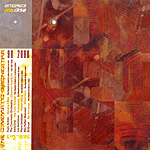 |
 |
|
|
|
| |||
 Cinematic Orchestra
Cinematic OrchestraRemixes [Ninja Tune] Rating: 6.7 This collection of remixes by jazz collective the Cinematic Orchestra fascinates not only due to the high quality of the band's somewhat Sunday Supplement jazz, but because their versions turn a spotlight on the state of remixing and that of jazz itself. Back in the disco-era, remixing was more akin to cut-and-paste editing. Those guys took the 7" hits of the day and, by extending the sections proven most effective in keeping the crowds under a unifying groove, ushered in an entire industry. (Of course, reggae had been doing this sort of thing years previously, but that's another rant I might have later on.) Soon, DJs who'd been sought out for their knowledge of dancefloor mechanics wanted to do more than just cut and loop; they wanted to introduce elements into their remixes not present in the source material. This is when the phrase "and additional production" crept into remixing credits. This license to drop in wholly new material reached its somewhat absurd apogee when Techno Animal informed their remixers that they didn't mind if none of the original material was incorporated. Not only does this freedom to exclude make a mockery of the definition of "remix," but also copyright. How can Techno Animal claim that a remix by, say, Porter Ricks which includes none of their elements should be credited to Techno Animal? In drum-n-bass, it's common practice that a remix will be classed an entirely new track and credited to the remixers. Yet, it would be rash to recommend that this passing of ownership should apply to the Cinematic Orchestra. On their debut album, Motion, the Orchestra demonstrated a thorough appreciation of the dynamics and nuances Gil Evans had added to Miles Davis' work. To be less charitable, Motion was a devoted rendering of Sketches of Spain and Quiet Nights. And though I've grown to adore Motion, it's never made my essential jazz selection. What the Cinematic Orchestra have done under the guise of remixing is actually cover versioning. Remixes opens with their version of Faze Action's sophisticated strut, "Moving Cities." The band has replicated the original's proud rhythm and let soprano saxophonist Tom Chant make haunting calls over it. It's an astounding rework of an essentially vapid, but immanently danceable track. Chant's lines speak of magic and loss and all the secretly joyous melancholies between them. I actually find it hard not to demand a rewind whenever I play this disc. "Moving Cities" is also difficult to get beyond because this version is, so far, the most vital track that the Cinematic Orchestra have committed to tape. Perhaps I'll eventually tire of "Moving Cities" and become equally enthused by the Orchestra's version of Piero Umiliani's "Panoramica" or Nils Petter Molvaer's "Vilderness." But for now, these two tracks exemplify a conservatism that, in my opinion, hampers all the band's output. The Cinematic Orchestra seems concerned not to ruffle feathers-- their jazz sound conforms to the Ken Burns/Wynton Marsalis dogma that gives supremacy to the jazz of more than 40 years ago, and denies value to any jazz that's since been tainted by radical adjustments in tonality or disrupted by politics. Play Target or Flag by the Vandermark Five and compare their screechy, gritty funk. You'll hear the Vandermark Five's brand of danceable jazz (especially on the opener, "Sucker Punch"), but you'll also hear microtonal, itchy bass clarinet and sax skronk that's far removed from the NPR-appropriate performance put together by these guys. The Vandermark Five make bold statements and have a great time doing it, and that comes across on their records. Meanwhile, it's hard to say whether the Cinematic Orchestra are even remotely amused by their own music. To my ears, the band plays with conviction that, regrettably, never reaches fervor. I believe musicians should be uncontrollably passionate, and use their talent to offer untranslatable insights to us cloth-eared dolts who gaze in wonder at their skills. Being on Ninja Tune should permit the Orchestra to rework some stellar stuff. How about them having a go at Kid Koala's "Fender Bender?" Imagine the Coltrane-esque fun Tom Chant could have recreating the screeeeps and screwwches that Koala's wrists wreak. Or how they could translate DJ Food's "The Aging Young Rebel." They could even work with Havana funk stoked by Up Bustle and Out. Regardless, I'm confident that the Cinematic Orchestra will escape their self-imposed portentousness. If they allowed themselves to leave the conservatoire, they could counter the stagnancy imposed and mandated by Burns and Marsalis. After all, Ninja Tune has the cachet and the marketing savvy to smear the globe with new combinations of jazz that both nod to the past and further the legacy of dance music. At such a time, they'll take this sublime form of human creativity out of its rarified, stifled academic bunker, and onto the open streets for folks to wantonly enjoy.
|
|||

